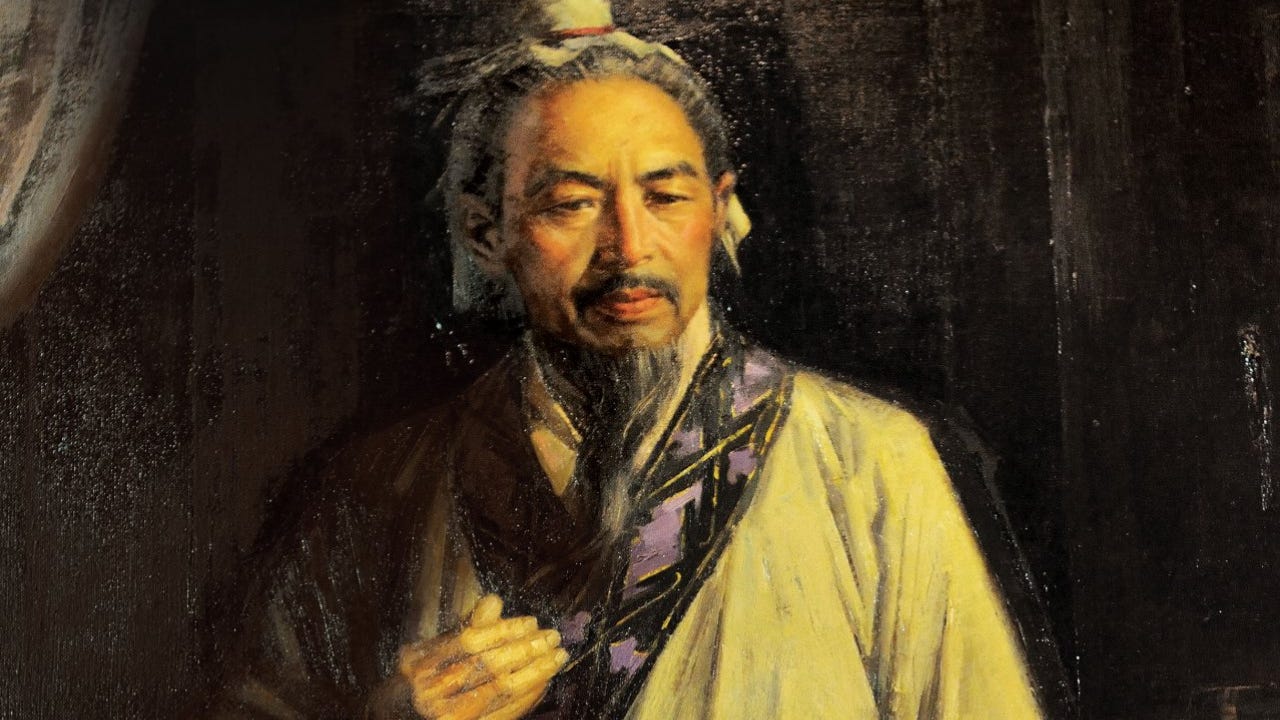Sun Tzu: The art of war and business strategy
The War Paradigm
Sun Tzu’s The Art of War was written 2,500 years ago and was most probably the first comprehensive book of military strategy ever written [47]. Sun Tzu saw strategy as a tool in warfare, primarily out of sight of the enemy, aimed at gaining advantage and defeating an adversary by fighting as few battles as possible [48]. Sun Tzu postulated achieving victory by out-thinking and out-fighting the enemy with the best tools at one’s disposal. The thirteen chapters of the book lay out an ideology of strategy as follows;
Chapter One: The proper planning of strategy. Chapter Two: How to avoid protracted campaigns. Chapter Three: How to defeat the enemy without going to battle. Chapter Four: Find the enemies weaknesses. Chapter Five: How to exploit opportunities. Chapter Six: How events and strategy are unpredictable. Chapter Seven: Relief of the enemy’s vigilance. Chapter Eight: The adaptation of strategy. Chapter Nine: Exploring the enemy’s position. Chapter Ten: The diligence of a commander. Chapter Eleven: The obedience and submission of subordinates. Chapter Twelve: Diligence and caution when undertaking tasks. Chapter Thirteen: The use of intelligence.
Within the above chapters are six basic applications of the principles outlined in each chapter of the book. These include;
Winning whole or succeeding with all one’s resources and objectives intact. Leading to advantage or how to prepare and position soldiers for victory. Deception or keeping one’s intentions secret from opponents and enemies. Energy or applying force effectively and efficiently. Capabilities or finding the best path to achieve an objective, and Initiative or how to take advantage and capitalize upon an emerging opportunity in a conflict.
Perhaps the most important aspect of Sun Tzu’s doctrines is wisdom. In ancient Chinese the character for wisdom was similar to the character for knowledge, thus wisdom and knowledge are interwoven. Sun Tzu believed that wisdom was an innate quality of a general and is made up of four qualities, the ability to plan, perceptibility, predictability, and adaptability. Therefore, in planning a good general must know what the fight is for and how to place his troops and weapons in the right place at the right time. Potential problems must be foreseen, so that solutions are available when and if they are encountered. In addition, a general must be free of emotion so that decisions can be made without undue influence and consistently. Finally the general must be able to adapt to unexpected changing circumstances that may arise in the course of the campaign.
In chapter five of The Art of War, military tactics are equated with the flow of water. “As flowing water runs away from high places and speeds downward, an army avoids strengths and seeks weaknesses. As water shapes its course according to the ground, an army works out its victory in relation to the enemy it faces. Therefore, as water retains no constant shape, there are no fixed conclusions in warfare. He can modify his tactics according to the enemy’s situation and thereby succeed in winning, may he be called divine” [49].
Always look for the path of least resistance
Military strategy has influenced business strategy as it has a similar objective of achieving a desired result and winning. Some of the important principals of Sun Tzu’s strategies that can be seen as relevant to business are summarized below:
· Business is extremely important to the owner so thorough planning is necessary
· Avoid if possible direct competition against competitors (i.e., find a market where there is no competition).
· Emulate as much as possible the strengths of your competitors and build your strengths where your competitors are weak.
· Ensure you have a planned exit strategy if necessary.
· Know your competitors well, you will have a better chance of success
· Good leadership is a powerful motivator of followers (wisdom, sincerity, benevolence, courage, strictness).
· Show by example.
· Develop shared values in your organization to gain commitment.
· Develop competitive advantage and make full use of it in the marketplace.
· A powerful and efficient leader is indispensable to the success of the firm.
· Have a good technical background.
· To be competitive, a company must be able to capitalize on various changes in the economy, business and social environments and develop strategies accordingly.
· Must realistically understand what is in and outside of your control.
· Position yourself close to the resources you need and markets.
· Strength is a relative concept, no absolute superior or inferior strength, it is how you arrange your resources that can bring success.
· Hide your strengths and weaknesses from your competitors so you have the element of surprise in the marketplace.
· Seek out as much information about your competitors, markets and customers as possible.
· Delegate subordinates with enough authority to get the job done.
· Training is an important method of achieving efficiency.
· A combination of benevolence and strictness is the key to guaranteeing loyalty of your staff, and,
· Be transparent in your reward systems so employees know what they will receive.
An element that is beginning to be regarded as an important trait in entrepreneurship is courage [50]. Sun Tzu mentioned courage in chapter eight describing a general as a person who must be brave and courageous in battle, and his troops if cowardly will face capture by the enemy. In addition, a general must be prepared to be bold and take calculated risks when necessary, in order to seize opportunities without hesitation. Courage should also be attached to resourcefulness and decisiveness. Courage runs in two directions. If a situation becomes hopeless, a general must recognize this and immediately make a retreat. The courage to move forward blindly, i.e., making decisions based upon courage alone, is not genuine courage but a delusion, something equated to what we recognize as an overconfidence bias [51].
Courage is an important trait in entrepreneurship
Many authors writing about Asian business attribute Chinese business success to the following of the doctrines of Sun Tzu [52]. This may have some positive bearing in the business strategies of some businesses, which are quoted as examples in books [53], and Sun Tzu’s philosophies have certainly influenced writers[54]. But as other authors have commented in the Asian SME context, most businesses start out finding the correct business strategies by nothing more than trial and error until they find the winning set of strategies for their businesses [55]. Very few business entrepreneurs in Southeast Asia until recently have been educated past secondary school and although Sun Tzu is known to Western business scholars, it is highly doubtful whether many are familiar with his works on strategy. However, there is some evidence that the educated Chinese public service over the centuries did use these texts in forming the strategies of Chinese state [56]. It appears that the doctrines of Sun Tzu were studied by Western military scholars [57] and the early business schools took some interest in The Art of War in the 1950s and 60s when the concepts of business and corporate strategy was being pioneered. Strategy as a war paradigm became very popular in the United States with a number of ‘bestsellers’ like Barrie James ‘Business War Games’, and Al Ries and Jack Trout’s ‘Marketing Warfare’ [58] in the 1980s and has become part of contemporary marketing terminology [59].
The best strategies are really found through trial and error
Yet it is claimed that Sun Tzu’s doctrine influenced Admiral Yamamoto in planning the Japanese attack on Pearl Harbor, Mao Tse-Tung’s philosophies, the Vietnamese General Vö Nguyên Giáp’s strategies that led to victories over the French and American forces in Vietnam, Che Gueverra’s revolutionary and guerrilla tactics in South America, and the Gulf war campaigns and resulting insurgencies [60]. In addition, Sun Tzu has become part of popular culture influencing films like the Star Wars Trilogy, Wall Street, The Sopranos (HBO), The Art of War, and Die Another Day. The influence of Sun Tzu on Asian business has probably been through these western influences, rather than direct knowledge and education in the region itself.
Click on subscribe so articles can be directly emailed to your inbox:
References
[47] Sun Tzu is believed to have been the author of The Art of War but accounts differ on the time he served as a general. Some accounts place him between 722-481 BCE, while others place him around 476-221 BCE. See Sawyer, R., D., & Sawyer, M-C., (2007), The Seven Military Classics of Ancient China, New York, basic Books, pp. 421-422.
[48] Sawyer, R. D., (1994), op. cit.
[49] Low, S., P., (2001), op. cit., P. 44.
[50] Hunter, M. (2012), Opportunity, Strategy, & Entrepreneurship: A Meta-Theory, Vol. 2, New York, Nova Scientific Publishers, P. 134.
[51] Hunter, M., (2012), ), Opportunity, Strategy, & Entrepreneurship: A Meta-Theory, Vol. 1, New York, Nova Scientific Publishers, P. 312
[52] Min Chen, (2004) Asian Management Systems, 2ndEdition, London, Thomson.
[53] Chen, M., J., (2001), op. cit.
[54] Ohmae, K., (1990), The Borderless World: Power and Strategy in the Interlinked Economy, London, Collins.
[55] Gomez, E., T., (2004), op. cit.
[56] Tung, R., L., (2001), Strategic management Thought in East Asia, In: Warner, M., Comparative Management: Critical perspectives on Business and Management, Vol. 3, London, Routledge,
[57] McNeilly, M., R., (2001), Sun Tzu and the Art of Modern Warfare, Oxford, Oxford University Press, pp. 6-7.
[58] James, B., G., (1986), Business Wargames, London, Penguin, and Ries, A., & Trout, J., (1986), Marketing Warfare, New York, Paperback,
[59] Terms such as offensive, defensive, flanking, and guerrilla marketing strategies have become very common in marketing expression.







No comments:
Post a Comment